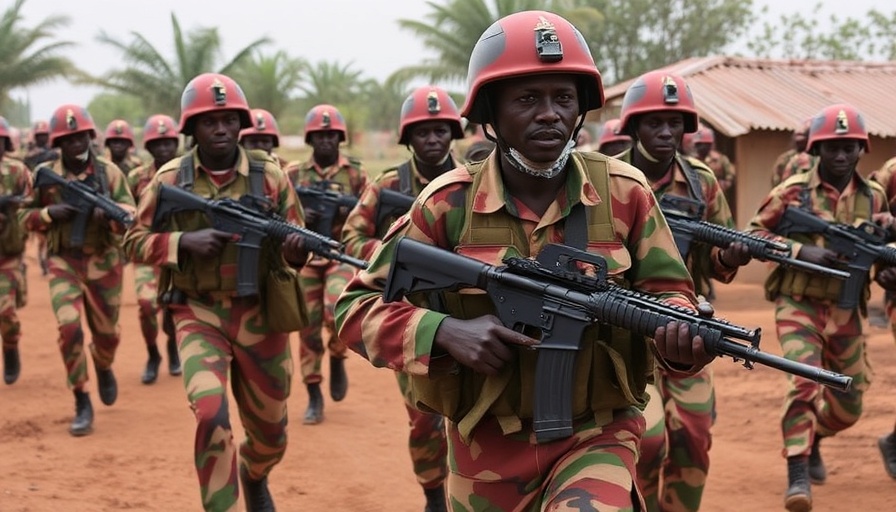
A Tactical Turnaround: South Sudan's Military Offensive
In a significant development for South Sudan’s political landscape, the military has successfully recaptured the strategic town of Nasir from the clutches of the White Army militia, an ethnic Nuer group, which had seized the town this past March. This military operation unfolds against the backdrop of heightened tensions resulting from the arrest of First Vice President Riek Machar, whose alleged support for the militia has sparked fears of a rekindled ethnic conflict.
Political Implications of Military Movements
The recent battles in Upper Nile reflect not only military strategies but deeper political rifts rooted in the nation’s tumultuous history. Since the 2018 peace agreement between President Salva Kiir and Machar, the fragile coalition government has been fraught with challenges. The ongoing conflict raises questions about the sustainability of power-sharing agreements in regions marked by ethnic divisions. Furthermore, Machar's house arrest may indicate an emerging paradigm where political dissent is increasingly stifled, a potential precursor to broader unrest.
International Reactions and Future Considerations
International reactions have underscored the precariousness of stability in South Sudan. Following Uganda’s military intervention to stabilize the capital, Juba, the regional dynamics are shifting, compelling global leaders and policymakers to stay vigilantly concerned about the implications for peace in East Africa. Recent assertions by Uganda's military commander, claiming significant losses among the White Army, suggest an escalation that may not only influence local politics but also regional security frameworks.
Understanding the Broader Context
As observers and scholars analyze the new order in South Sudan, the unfolding events in Nasir and surrounding regions must be contextualized within wider geopolitical realities. Relations between Africa and major powers are ever-evolving, particularly in trade dynamics and security alliances. This interplay raises critical questions about South Sudan’s future direction within both regional and global frameworks, particularly concerning the African Union’s investment in peace-keeping efforts and governance reforms.
Final Thoughts: Navigating Uncertain Terrains
As the situation in South Sudan continues to develop, it becomes imperative for business leaders, policymakers, and academics to closely monitor these patterns of conflict and governance. The outcomes of this military recapture initiative could serve as a harbinger for future engagements in other fragile African states. Stakeholders must adapt strategies suited to an increasingly urgent socio-political climate to effectively participate in shaping a more stabilized and secure African landscape.
 Add Row
Add Row  Add
Add 


 Add Row
Add Row  Add
Add 

Write A Comment